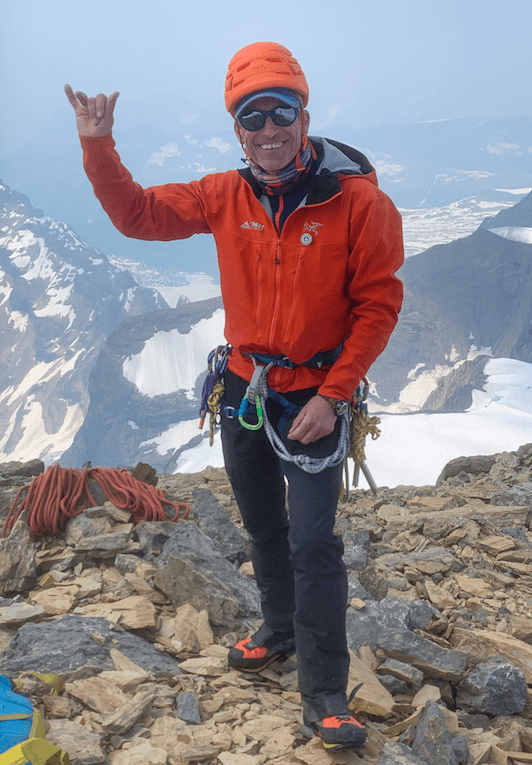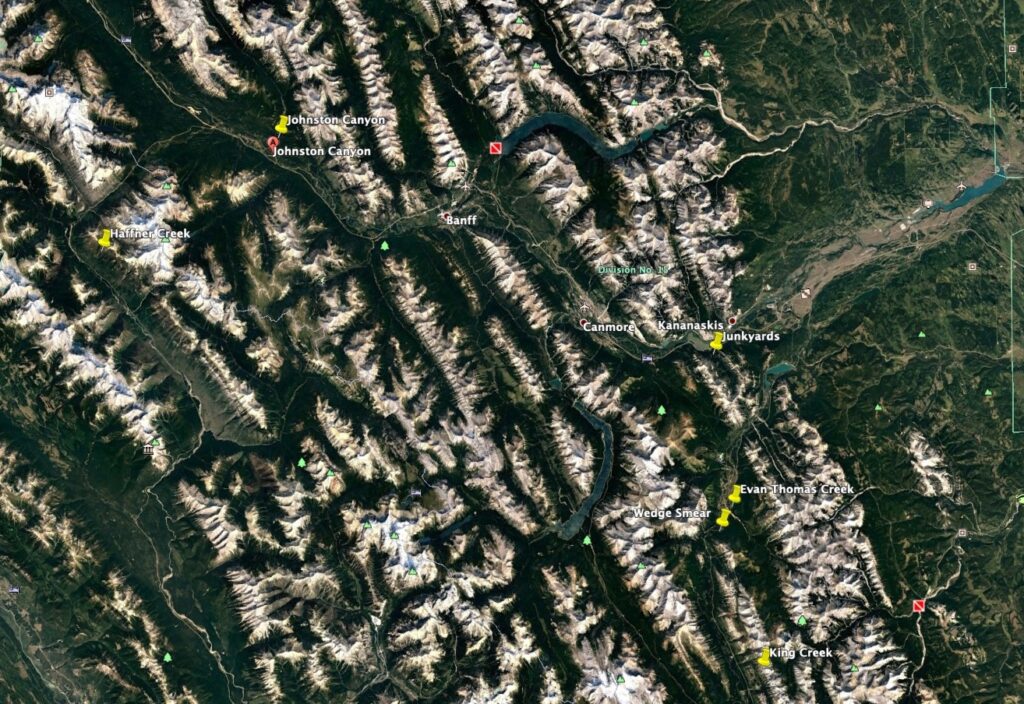- About the ACC
- Membership
- Huts
- Adventures
POLICIES & INSURANCE
- COMMUNITY
- Environment
- Shop
- Give
Are you ready to take the next step in your backcountry skiing career? Sometimes just lapping that great powder field isn’t enough and you want to start testing yourself on technical summits or steep couloirs. Like many things in the mountains, increased challenge comes with increased risk. Which is why we’ve developed a course to teach you the skills needed to progress safely and responsibly.
Based out of the Banff/Canmore/Lake Louise area, this camp puts you on the doorstep of some of the best ski mountaineering terrain in North America at a time of the year when the snowpack is typically more stable, crevasses have good coverage and the ski quality is at its best. Combine that with our highly experienced guides, and the foundations are set for a full week of summits, couloirs and learning. Not to mention you can say goodbye to the -30 weather!
Come push your winter capabilities further with the ACC this spring!

BOOKING INFORMATION
Date:
APRIL: 12TH- 15TH, 2024
APRIL: 4TH – 7TH, 2025
Price: $1050+ TAX
MORE INFORMATION
Please try to register online before calling. If you are having issues please try to have your emergency contact information and course questionnaire filled out before calling.
OR Call: (403)-678-3200 ext 213
Backcountry Skiing Hazards
This course aims to teach you core ski mountaineering skills such as:
As well as hard skills, there will be opportunity to develop softer skills such as
As a minimum, you should have an intermediate level of backcountry ski experience, be comfortable with your touring gear, and have already completed the AST-1 course or equivalent (preferably AST-2). You should also have a good level of fitness: some of the bigger objectives will involve an alpine start and a 10+ hour ski day. If you have any questions about your suitability for this course, please contact the National Office before registering.
Food is not included in this course. Please bring a packed lunch and snacks for each day.
We recommend staying in Canmore or Banff to be the most central to daily objectives. Why not top of your experience with a stay at our Canmore Clubhouse hostel. Please check with our front desk for availability and bookings – 403.678.3200 ext. 0
Our highly experienced ski guides have a specialized background in offering instructional and skill development courses. This year we will be reducing the numbers of participants to each full ski guide to a maximum of 5:1 to give you as much time interacting with our guides as possible. If we receive sufficient registrations, this will also mean that the group can split into two based on ability, fitness, ambition or preferred objective.
The ACC hires guides certified by the Association of Canadian Mountain Guides (ACMG). Visit the ACMG website to learn more about what they do!

Don’t have everything on the gear list (found on the right hand side of this webpage)? We recommend heading to Gear Up in Canmore to grab any items your might be missing. To ensure availability of items call ahead to book. ACC members get a 10% discount.
FRANCISCO MEDINA-SCH.
Francisco – AKA Pancho – is originally from Santiago, Chile where he began his outdoor pursuits at an early age accomplishing numerous first ascents in the Andes. At 18, he was invited on a climbing trip to the Alps where his passion for adventures in the mountains was cemented. Pancho began his guiding career leading mountaineering trips to Aconcagua and trekking trips to Patagonia and in 2004 he received his UIAGM/IFMGA mountain guide certification in France and has continued his guiding career in the Andes, Alps, Rockies and Himalayas. In 2006 he began semi-annual trips to Canada to experience all the Canadian Rockies have to offer and now reside full-time in Canmore with his wife. Pancho is excited about sharing the outdoors with his guests, whether it is mountaineering, climbing, skiing, trekking, or teaching outdoor education courses.


We sell Tugo® Travel Insurance suitable for both ACC Adventures and personal trips:
INCLUDED WITH YOUR CAMP FEE
PARTICIPANTS MUST PROVIDE
ORGANIZING FANTASTIC ACC ADVENTURES FOR OVER 100 YEARS
Input your search keywords and press Enter.